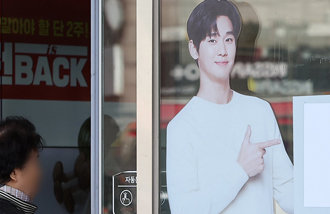Preference for Real Estate Investment Increases While Entrepreneurship Decreases
Preference for Real Estate Investment Increases While Entrepreneurship Decreases
Posted April. 18, 2007 03:05,
A recent report found that Korean peoples preference to invest in real estate such as land and building has doubled since the late 1970s.
However, the number of people who want to start a new business with extra money dropped by more than 80 percent, demonstrating the lackluster economic growth.
On April 17, the Korea Research Institute for Human Settlements (KRIHS) published the report entitled The Assessment of Changing Public Perception on Land.
In the report, the KRIHS compared the survey results for public perception on land for 1979, 1985, 2000, and 2006. Last September, the institute carried out a nationwide survey by phoning 1,800 men and women ranging from the ages of 30 to 70.
According to the report, those who said accumulating wealth by investing in land is not socially problematic increased from 51.1 percent in 1979 to 67.5 percent last year. This showed that the negative view on land investment has decreased.
Likewise, during the same period, the share of respondents who selected real estate for their investment destination surged from 28.6 percent (land 17.8 percent, building 10.8 percent) to 57.4 percent (land 29.9 percent, building 27.5 percent).
In 1979, the most preferred form of land was farmland (26.4 percent), followed by housing land (24.9 percent) and farmland and forest land for investment purpose (11.9 percent). But last years survey showed that the ranking changed to farmland and forest land for investment purpose (34.2 percent), housing land (31.9 percent), and farmland (13.3 percent).
In the meantime, the proportion of people who would like to use the extra money on starting a new business dropped from 39.9 percent to 7.6 percent.
Several economists said the result is natural considering the surge in real estate prices last year. They expressed concern, however, about the weakening entrepreneurship which had led the Korean economys rapid growth.
Dwindling entrepreneurship is attributable to the sluggish economic growth in recent years and the uncertain long-term economic outlook. In an environment where people hesitate to set up a new business, the economy cannot grow in the long run, said Sogang University economics professor Kim Gyeong-hwan.
The report also showed that people are putting more importance on private ownership than public ownership of land.
Respondents who answered that the government should strengthen the policy on public land ownership decreased from 94.2 percent in 2000 to 81.2 percent last year, while those who said the opposite increased from 5.8 percent to 13.1 percent.
Moreover, respondents showed a growing inclination to attach importance to public interest. The share of opponents to the separate land right policy, in which the government has the right to develop and individuals have the right to use land, increased from 13.1 percent in 2000 to 22.4 percent last year.
However, the survey showed that the proportion of supporters to capital gains from increase in land prices rose from 69.4 percent to 81.4 percent during the same period.
bae2150@donga.com
Headline News
- Opposition parties pass amendment to Commercial Act
- Impeachment motions against top officials dismissed
- IU's residence ranked as the nation's most expensive apartment
- K-medicine saves 300 lives in Mongolia through liver transplant skill transfer
- Prisoners in N. Korean camps suffer from torture at minus 30 degrees







